第42章
Now, in order to remove in the supposed case the apparent contradiction between freedom and the mechanism of nature in one and the same action, we must remember what was said in the Critique of Pure Reason, or what follows therefrom; viz., that the necessity of nature, which cannot co-exist with the freedom of the subject, appertains only to the attributes of the thing that is subject to time-conditions, consequently only to those of the acting subject as a phenomenon; that therefore in this respect the determining principles of every action of the same reside in what belongs to past time and is no longer in his power (in which must be included his own past actions and the character that these may determine for him in his own eyes as a phenomenon).But the very same subject, being on the other side conscious of himself as a thing in himself, considers his existence also in so far as it is not subject to time-conditions, and regards himself as only determinable by laws which he gives himself through reason; and in this his existence nothing is antecedent to the determination of his will, but every action, and in general every modification of his existence, varying according to his internal sense, even the whole series of his existence as a sensible being is in the consciousness of his supersensible existence nothing but the result, and never to be regarded as the determining principle, of his causality as a noumenon.In this view now the rational being can justly say of every unlawful action that he performs, that he could very well have left it undone; although as appearance it is sufficiently determined in the past, and in this respect is absolutely necessary; for it, with all the past which determines it, belongs to the one single phenomenon of his character which he makes for himself, in consequence of which he imputes the causality of those appearances to himself as a cause independent of sensibility.